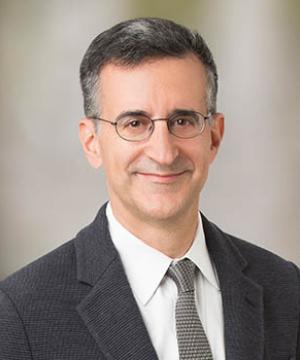How China Will Change the International Arbitration Field
White & Case’s Paul Friedland ’80, the keynote speaker at Columbia Arbitration Day Conference, gives an advance interview.
Friedland will deliver the keynote address at Columbia Arbitration Day on March 2nd, and in an interview before the conference, he gave a preview of how he sees the landscape evolving. While China’s role will inevitably grow, Brexit will not significantly decrease London’s role as a center of arbitration, Friedland says, “because the conditions that make London central to arbitration aren’t much affected by Brexit.” In particular, he cites the English law and language, the concentration of legal talent, and liberal arbitration laws in the UK.
A strengthened sense of nationalism may also increase international commercial arbitration, Friedland notes, since parties in a dispute may be leerier then ever of domestic courts abroad.
He will address these issues at the Columbia Arbitration Day conference before an international audience of practitioners, students, and scholars. “Our theme this year is about looking forward to cutting-edge reform debates, and the challenges facing the New York Arbitration Convention on its 60th anniversary,” says conference chair Michael Lemanski ’19.
The guiding force behind the annual conference—the largest in the field—has been Columbia Law School Professor George Bermann, a leading arbitration expert who directs the Law School’s Center for International Commercial and Investment Arbitration (CICIA).
According to Friedland, while investor-state dispute settlement (ISDS) has for several years been a sore spot for academia and civil society, he foresees “a robust ISDS system over the next 10 years,” citing positive trends in the caseload, as well as in the signing of new treaties by China and African nations. In any event, says Friedland—who has served as counsel or as arbitrator in numerous international arbitrations—“ISDS is a small percent of this world. Commercial arbitration is the bulk of the iceberg.”
Friedland anticipates that China will be central to the field’s evolution over the next decade. The nation has lagged as a major player in international disputes, he added—whether due to a lack of litigiousness, or a discomfort with international dispute resolution, or because investors have been willing to swallow losses for the sake of future business. Friedland speculates that China’s appetite for litigation will settle in somewhere between that of Japan and America. But in all events, he says, an economy of its scale can’t help but intrude into commercial disputes of all kinds.
U.S. repudiation of the Trans-Pacific Partnership dismayed Friedland. Yet it left China’s “One Belt, One Road” initiative as the unrivaled axis of future global development. “One Belt, One Road” calls for infrastructure spending equivalent to more than six Marshall Plans—from Central Asia to Europe, and from Indochina to Africa. “Infrastructure deals are especially prone to big dollar disputes,” Friedland notes.
Friedland sees five possible scenarios for settling future Silk Road disputes: in Chinese “international” (read: domestic) courts; in Hong Kong arbitration; in Chinese arbitration; in regional arbitration centers set up by China; or in global arbitration centers like Singapore’s.
Friedland finds the first two scenarios most likely—and the last two most desirable. He believes that, for now, most parties to a dispute will wish to avoid the China International Economic and Trade Arbitration Commission (CIETAC) almost as strenuously as they wish to avoid Chinese courts. “I see no appetite by international parties to agree to CIETAC,” he says. “That's why Singapore and Hong Kong have flourished as venues to settle for China-related disputes.”
Already when he was a Columbia Law School student and Kent Scholar and Law Review editor, Friedland wondered about the rise of international and Chinese law and took courses on those subjects. But he reassures students who wish to follow in his footsteps that much of their education in the field will occur after graduation. “During interviews, I said that I wanted to pursue international arbitration but I had no clue know what it was,” he recalls, thinking back to when he was talking to prospective employers.
What should global lawyers of the future prioritize to fill in their knowledge gaps? “There will be a need for Chinese speakers and people who know Chinese law,” says Friedland. But the implications of “One Belt, One Road” only start in Beijing.
“In five years there could be an arbitration group in Bishkek,” he adds, “and a need for lawyers who know Kyrgyz law or speak Kyrgyz.” Indeed, an international law office in Bishkek requires scant imagination a few weeks after White & Case has already opened an Uzbek office, in Tashkent, and soon enough, the road from Tashkent to Bishkek will again start in Beijing.
# # #
Published on February 28, 2018
